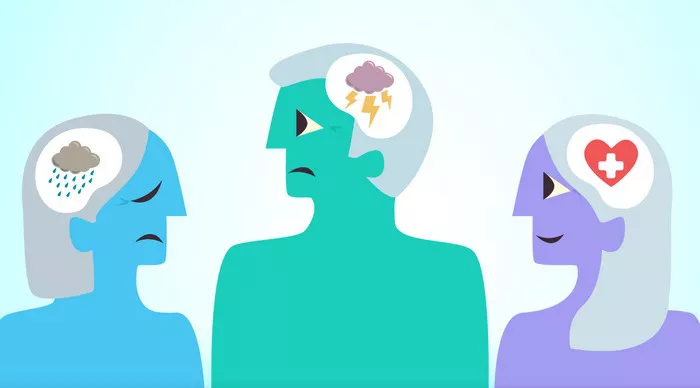1. Introduction
Obsessive-Compulsive Disorder (OCD) is a mental health condition characterized by persistent, intrusive thoughts (obsessions) and repetitive behaviors or mental acts (compulsions) performed in response to these thoughts. OCD can significantly impact daily functioning, leading to distress and interference with work, school, and relationships. Conventional treatment options for OCD typically include cognitive-behavioral therapy (CBT), exposure and response prevention (ERP) therapy, and medication, such as selective serotonin reuptake inhibitors (SSRIs) or tricyclic antidepressants.
In recent years, there has been growing interest in alternative therapies for OCD, including hypnosis. Hypnosis is a therapeutic technique that induces a state of deep relaxation and heightened focus, allowing individuals to access their subconscious mind and make positive changes. This article explores the potential role of hypnosis in treating OCD, its mechanisms of action, existing research and evidence, potential benefits, comparison with traditional treatments, finding qualified hypnotherapists, realistic expectations, and conclusions.
2. How Hypnosis Works
Hypnosis involves guiding individuals into a trance-like state where they are highly focused and more open to suggestion. During hypnosis, the conscious mind becomes relaxed, while the subconscious mind becomes more accessible. This state of deep relaxation can help individuals become more receptive to therapeutic suggestions aimed at addressing underlying issues contributing to OCD symptoms.
In the context of OCD, hypnosis may work by reducing anxiety and stress levels, breaking negative thought patterns, enhancing self-awareness and coping skills, promoting relaxation and mindfulness, and facilitating behavioral change. By accessing the subconscious mind, hypnosis can help individuals challenge irrational beliefs and develop healthier coping mechanisms.
3. Research and Evidence
While research on the use of hypnosis for OCD is still limited compared to conventional treatments, there is growing evidence to support its effectiveness. Several studies and clinical trials have demonstrated the potential benefits of hypnosis in reducing OCD symptoms and improving overall well-being.
For example, a pilot study published in the International Journal of Clinical and Experimental Hypnosis found that hypnosis combined with CBT was effective in reducing OCD symptoms in participants compared to CBT alone. Another study published in BMC Psychiatry showed that hypnosis was associated with significant improvements in OCD symptoms, anxiety, and depression.
However, it’s essential to acknowledge the limitations of existing research, including small sample sizes, lack of long-term follow-up, and variations in hypnosis techniques and protocols. More well-designed studies are needed to further evaluate the effectiveness of hypnosis for OCD.
4. Potential Benefits of Hypnosis
Hypnosis offers several potential benefits for individuals with OCD, including improved symptom management, reduced anxiety and distress, increased self-efficacy and confidence, improved sleep quality, and enhanced overall well-being. By addressing underlying psychological factors contributing to OCD, hypnosis can help individuals experience lasting relief from symptoms and regain control over their lives.
5. Hypnosis vs. Traditional Treatment
While hypnosis shows promise as a complementary therapy for OCD, it’s essential to recognize that it is not a replacement for conventional treatments such as CBT and medication. Hypnosis should be used in conjunction with other evidence-based treatments to maximize its effectiveness. Additionally, hypnosis may not be suitable for everyone, and individual responses may vary.
6. Finding a Qualified Hypnotherapist
When considering hypnosis as a treatment for OCD, it’s crucial to find a qualified and experienced hypnotherapist who specializes in treating OCD or related anxiety disorders. Look for professionals who have received proper training and certification from reputable organizations, such as the American Society of Clinical Hypnosis or the British Society of Clinical Hypnosis. Additionally, seek recommendations from trusted healthcare providers or mental health professionals.
7. Realistic Expectations and Considerations
It’s essential to have realistic expectations about the potential outcomes of hypnosis for OCD. While hypnosis can be effective for many individuals, it may not work for everyone, and results may vary. It’s also important to consider potential risks and limitations, such as the need for ongoing therapy, the possibility of experiencing temporary discomfort or emotional distress during hypnosis sessions, and the importance of maintaining open communication with the hypnotherapist throughout the treatment process.
8. Conclusion
In conclusion, hypnosis shows promise as a complementary therapy for OCD, offering potential benefits such as improved symptom management, reduced anxiety, and increased overall well-being. However, it’s essential to recognize that hypnosis is not a standalone treatment for OCD and should be used in conjunction with other evidence-based therapies. Individuals considering hypnosis for OCD should seek guidance from qualified mental health professionals and maintain realistic expectations about the treatment outcomes.
For additional information and support regarding OCD and hypnosis, consider reaching out to mental health organizations, support groups, or licensed therapists specializing in OCD treatment. By exploring various treatment options and seeking professional help, individuals with OCD can find relief from their symptoms and improve their quality of life.
FAQs
How did I cure my OCD naturally?
I began by practicing mindfulness and meditation regularly, which helped me observe my intrusive thoughts without reacting to them. Additionally, I gradually exposed myself to feared situations while resisting compulsions, with the support of a therapist. Building a strong support network and maintaining a healthy lifestyle also played crucial roles.
What is the best way to overcome OCD?
The best approach often involves a combination of cognitive-behavioral therapy (CBT), particularly exposure and response prevention (ERP), along with medication if necessary. ERP helps you confront feared situations or thoughts while resisting the urge to perform compulsions. Consistent practice, patience, and seeking support from a therapist are key.
How to break an OCD cycle?
Breaking an OCD cycle involves gradually exposing yourself to triggers while resisting compulsions. Start small and work your way up, challenging yourself to tolerate discomfort without engaging in rituals. Keep a journal to track your progress and celebrate small victories. Consistency and persistence are essential for breaking the cycle.
Related topics:
- Understanding ADHD: Is It Present from Birth?
- Is PTSD Normal?
- Is Pure OCD Curable? Understanding, Treating & Living


